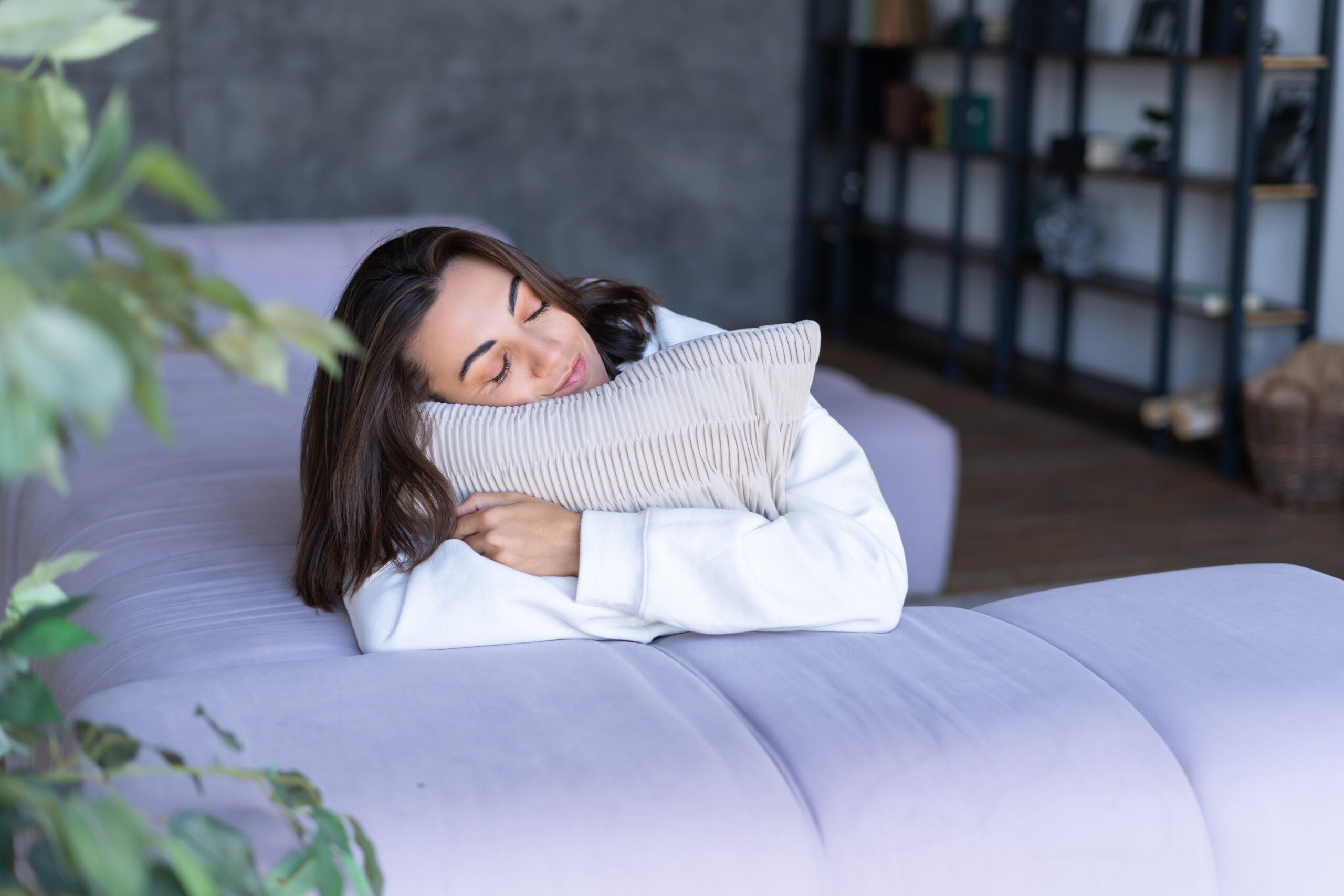Natural Ways to Improve Sleep Quality: The Complete Guide for 2025
Introduction
Sleep is not just a luxury; it is a necessity for a healthy and balanced life. Every cell in the human body depends on rest to repair, rejuvenate, and function properly. Yet in today’s fast-paced world, many people are struggling with disrupted sleep schedules, restless nights, and poor sleep quality. According to research, nearly one-third of adults report difficulty falling asleep or staying asleep.
Instead of turning immediately to medications or sleeping pills, more people are seeking natural ways to improve sleep quality. Natural methods not only provide long-term solutions but also enhance overall physical and mental health. This guide explores in depth how lifestyle changes, nutrition, relaxation techniques, and holistic remedies can help you achieve restorative sleep without depending on chemicals.
1. Why Sleep Quality Matters
Getting eight hours of sleep does not automatically mean you are well rested. Sleep quality refers to how deeply and consistently your body cycles through the essential sleep stages. Poor sleep quality can lead to:
-
Reduced productivity and focus
-
Irritability and mood swings
-
Weakened immune system
-
Higher risk of obesity, heart disease, and diabetes
-
Increased anxiety and depression
On the other hand, improving sleep quality naturally allows you to wake up refreshed, energized, and emotionally balanced. This makes it one of the most powerful tools for better health and success in life.
2. Understanding the Sleep Cycle
Before applying natural ways to improve sleep quality, it is important to understand how sleep works. The human body goes through several stages each night:
-
Stage 1 (Light Sleep): A transitional phase where the body begins to relax.
-
Stage 2: Heart rate slows, body temperature drops, and the brain prepares for deep sleep.
-
Stage 3 (Deep Sleep): The most restorative phase, where tissue repair, muscle growth, and immune system strengthening occur.
-
Stage 4 (REM Sleep): Rapid Eye Movement sleep, critical for memory consolidation, creativity, and emotional regulation.
Disruptions — such as waking up frequently, consuming stimulants, or using electronics before bed — prevent the body from completing these cycles, leaving you tired even after a full night’s sleep.
3. Lifestyle Habits That Naturally Improve Sleep
Stick to a Consistent Schedule
Your body has an internal clock called the circadian rhythm. Going to bed and waking up at the same time every day helps regulate this rhythm, making it easier to fall asleep naturally.
Limit Stimulants Before Bed
Caffeine, alcohol, and nicotine can delay sleep onset and reduce deep sleep. Avoid coffee, energy drinks, or alcohol at least 4–6 hours before bedtime.
Reduce Screen Time
Blue light emitted by smartphones, tablets, and computers signals the brain to stay awake by suppressing melatonin, the sleep hormone. Turning off devices one hour before bed is one of the most effective natural ways to improve sleep quality.
Create a Sleep-Friendly Environment
-
Keep your bedroom cool (around 18–20°C or 65–68°F).
-
Use blackout curtains or an eye mask to block light.
-
Choose a supportive mattress and pillows that promote comfort.
-
Keep the bedroom quiet, or use white noise machines to mask disturbing sounds.
4. Nutrition and Herbal Remedies
Diet has a significant effect on sleep. Some foods and natural remedies are known to promote relaxation and melatonin production.
Sleep-Boosting Foods
-
Cherries & Kiwi: Natural sources of melatonin.
-
Bananas: Rich in magnesium and potassium, which relax muscles.
-
Almonds & Walnuts: Provide magnesium and promote serotonin production.
-
Oats & Milk: Support melatonin and tryptophan levels.
Herbal Teas
-
Chamomile Tea: Known for its calming effects.
-
Valerian Root Tea: Helps reduce anxiety and promote deep sleep.
-
Lavender Tea: Relieves stress and enhances relaxation.
Supplements (With Caution)
-
Magnesium: Supports nervous system relaxation.
-
L-theanine: Found in green tea, helps reduce stress.
-
Ashwagandha: An adaptogenic herb that balances cortisol (stress hormone) levels.
These remedies are popular natural ways to improve sleep quality because they calm the body without the side effects of sleeping pills.
5. Relaxation Techniques to Calm the Mind
Deep Breathing
Practicing slow, controlled breathing helps activate the parasympathetic nervous system, which induces relaxation.
Progressive Muscle Relaxation
This technique involves tensing and relaxing different muscle groups, releasing physical tension stored in the body.
Meditation and Mindfulness
Spending 10–15 minutes in guided meditation before bed lowers stress, improves emotional balance, and prepares the mind for restful sleep.
Journaling
Writing down thoughts or to-do lists can prevent overthinking at night, a common reason why people struggle with insomnia.
6. Exercise and Sleep Connection
Physical activity improves sleep quality, but timing matters.
-
Morning or Afternoon Workouts: Boost energy and help regulate circadian rhythm.
-
Yoga & Stretching at Night: Gentle movements calm the body and reduce restlessness.
-
Avoid Late-Night Intense Exercise: This can elevate adrenaline and make it harder to sleep.
Exercise is a natural stress reliever, making it one of the simplest natural ways to improve sleep quality.
7. Evening Rituals and Natural Sleep Routines
Creating a bedtime routine helps signal to the body that it is time to rest. Examples include:
-
Taking a warm bath or shower
-
Reading a physical book
-
Practicing aromatherapy with essential oils (especially lavender or sandalwood)
-
Listening to calming music or nature sounds
When practiced consistently, these rituals become powerful sleep cues.
8. Managing Stress and Anxiety Naturally
Stress is one of the biggest enemies of sleep. Instead of relying on medication, try:
-
Cognitive Behavioral Therapy (CBT-I): Teaches how to reframe anxious thoughts at bedtime.
-
Spending Time Outdoors: Sunlight exposure regulates melatonin production.
-
Social Support: Talking to family, friends, or support groups helps reduce emotional burden.
9. Special Considerations
Busy Professionals
For people working long hours, short power naps (10–20 minutes) can help, but they should not replace nighttime sleep. Time-management strategies and stress reduction are essential.
Children and Teenagers
Limiting screen time, consistent bedtimes, and encouraging physical activity are crucial. Sleep plays a vital role in growth and learning.
Older Adults
With age, melatonin production decreases. Gentle exercise, daylight exposure, and relaxing evening rituals can help seniors improve sleep naturally.
10. When to Seek Medical Help
If natural remedies fail and symptoms persist for weeks, consult a doctor. Disorders such as sleep apnea, chronic insomnia, or restless leg syndrome may require professional care. Natural methods can still support recovery, but medical guidance is necessary for safety.
Conclusion
Sleep is the foundation of health, productivity, and happiness. By applying these natural ways to improve sleep quality, you can avoid the risks of dependency on medication while building sustainable habits. From nutrition and herbal remedies to mindfulness, exercise, and lifestyle changes, every step contributes to better rest.














Post Comment